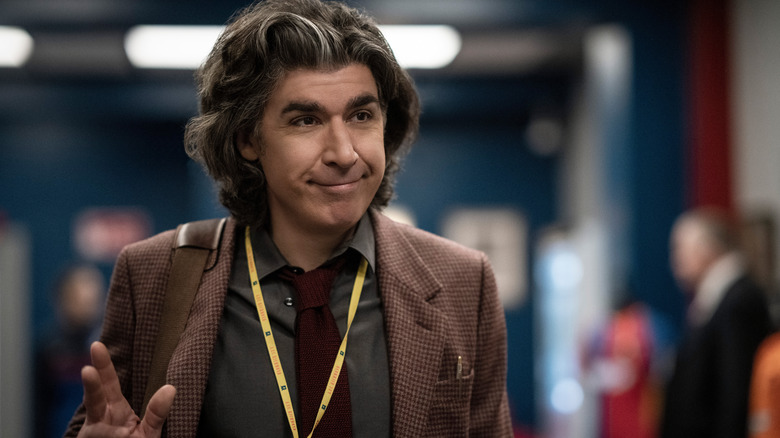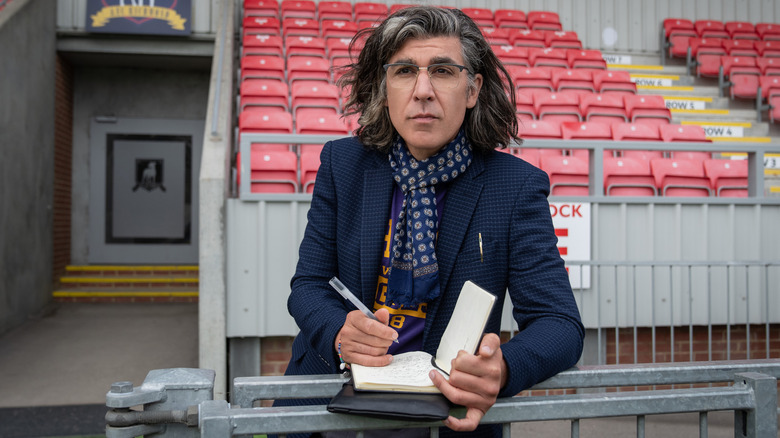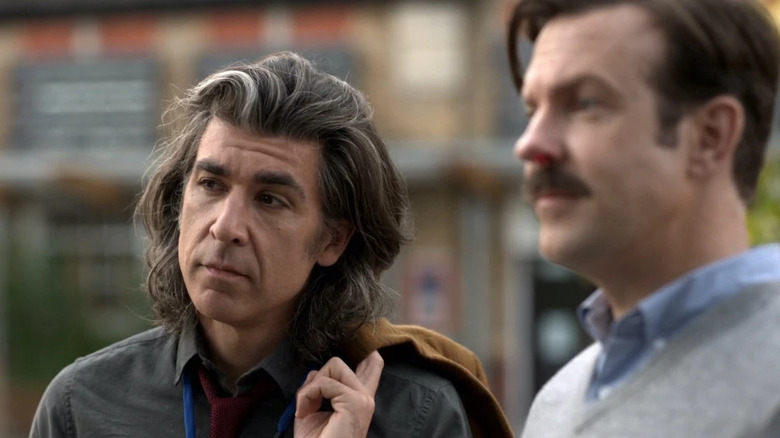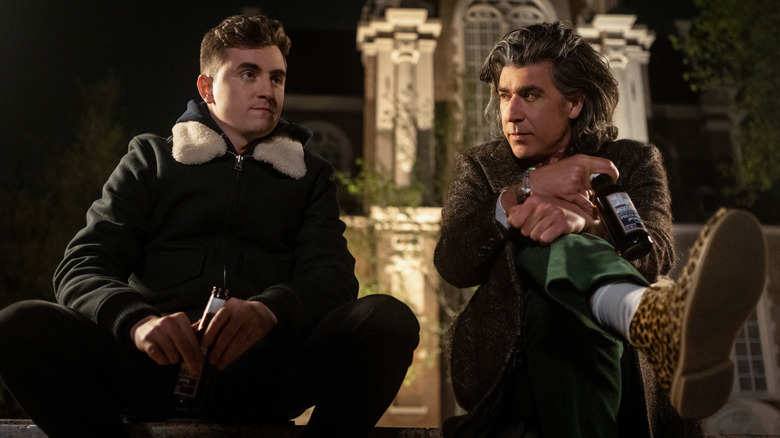Ted Lasso's James Lance Explains The Unseen Backstory Behind Trent Crimm, The Independent
Not every story decision made for season 3 of "Ted Lasso" has been a success. Frankly, some of them don't make any sense to me at all: Hinging Rebecca's arc on a meeting with a psychic remains absolutely baffling; I have yet to understand what was going on with Shandy's brief employment period; and I grow more nervous about the trajectory of the Keeley-Jack romance by the day.
Yet other aspects of the season have been beyond perfect — like Jamie teaching Roy how to ride a bike or the team coming together to clean up Sam's restaurant. It's a mixed bag of a season, but there are still plenty of episodes to go and if Ted has taught us anything, it's to always focus on the positives. And on the subject of what's going really well, one of the season's biggest standouts has to be James Lance as everyone's favorite journalist: Trent Crimm (formerly of The Independent).
Investing more time in Trent was a brilliant choice from the Lasso writers. As of this (potentially final) season, he's gone from stylish to recurring character to a constant presence in the Greyhound locker room. He's around to hype Ted up, offer sage football advice, and charm our socks off with his voluminous silver-streaked locks. Best of all, we're finally getting some insight into who Trent is outside of his job!
But make no mistake: just because Trent has been a mystery to us, doesn't mean that James Lance was in the dark too. The "Ted Lasso" actor has been thinking about his character's backstory since day one.
The truth about Trent Crimm
During a recent interview with TheWrap, Lance revealed that he's had ideas about Trent's past since the very beginning, and made sure to bring them to series star and co-creator Jason Sudeikis.
"We had a three-minute conversation in the car park. I said, 'Hey, I think the reason he's the way he is, is because he's got this kind of oppressive father,' And he was like, 'You know, this whole series, this whole show is about bad dads.'" Evidently, that conversation helped to unlock the core of Trent's character. Lance told Sudeikis that from his POV, Trent still "wasn't living the life he wanted to live."
Lo and behold, Trent would come to a very similar conclusion at the end of the second season and completely alter the trajectory of his career.
Here's a quick recap on Trent Crimm: when we first meet the smooth journalist with a sharp pen, he's skewering Ted at his very first AFC Richmond press conference. From then on, he seemed hellbent on exposing Ted to be a joke — pointing out the areas where he's lacking and asking tough questions. But after spending a day with the coach, Trent came to understand what he calls 'The Lasso Way' (which should obviously be the title of his book). It stuck with him so much that after he exposed Ted's mental health issues in an Independent article, he promptly quit and decided to instead write a book about Ted's team.
Ted Lasso is about bad dads and being your best self
As Sudeikis said, bad dads are baked into the "Ted Lasso" DNA, but when you strip away the parental trauma and football, this show is about personal growth. The amount of change we've seen from these characters over the course of three seasons is incredible — and that doesn't just go for Ted, Roy, and all the other long-time main characters. Trent may have started out in the background, but he's been growing right along with them. "Trent has been changing from the first time we ever see him," Lance told TheWrap.
The Trent we know now has come a long way since making fun of Ted in the pilot. For Lance, that too goes back to Trent's unspoken backstory:
"I had this feeling that the first time we see Trent, he is in the press room and he sets out to humiliate and shame Ted Lasso. I quite liked the idea that that question 'Is this a f—g joke?' is something that Trent grew up with his dad [saying] to him a lot. And it was really shameful and really posing and painful and you know, the idea that hurt people hurt people."
For Lance, that moment is about Trent trying to fit in. A similar sentiment is expressed by the journalist earlier in the season when Roy confronts him about the brutal way he tore him down after his very first game. "I was trying to make a name for myself," Trent explained. "All I really did was look for the worst in people. I'm sorry."
Trent is still a bit misguided when we meet him in the pilot. He's still wielding what Lance thinks of as his dad's words. So what changed? The same thing that's changed everyone else, of course: Ted freaking Lasso.
Embracing The Lasso Way
Seeing Ted's approach to kindness in action has had a ripple effect on every character in the show — and Trent Crimm is no exception. "Trent constantly observes the way that Ted handles situations," Lance explained. "This guy is not gonna get taken down by shame, and actually, it's that feeling of like, 'Wait, when did I become the bad guy?" His big turning point was writing about Ted's panic attacks. "He's setting out again to eviscerate Ted with the article, [but] he just can't because the guy is pure and he's loving, so it puts him through a massive spin."
In the end, he decides to leave his days as Trent Crimm, The Independent behind and become plain ol' independent. And he's better off for it. Embracing the Lasso Way and spending time with the Greyhounds gave him the space to share a touching moment with Colin that has already earned its place as the emotional highlight of the season.
Cleverly, the earlier episodes leaned into the ambiguity of this plotline: by the time Trent realizes that Colin is gay, we've seen him wield his journalistic powers to hurt people in the past, so there was some concern that history would repeat itself. Lance noted that it "creates space for imagination because everyone's thinking 'Oh my God, is he going to out him? Is he going to expose them? Is he going to be mean? Are we going to see the old Trent or what?"
But Trent had nothing nefarious in mind — he was cautious because he understood what Colin was going through. So during the Amsterdam excursion, they have a tender heart-to-heart where Trent unpacks the struggles of coming out and gives Colin the space to do the same. "It's like a feedback loop," Lance said of the scene. "By Colin being himself, Trent is allowed to be himself. There's a beautiful harmony there."



